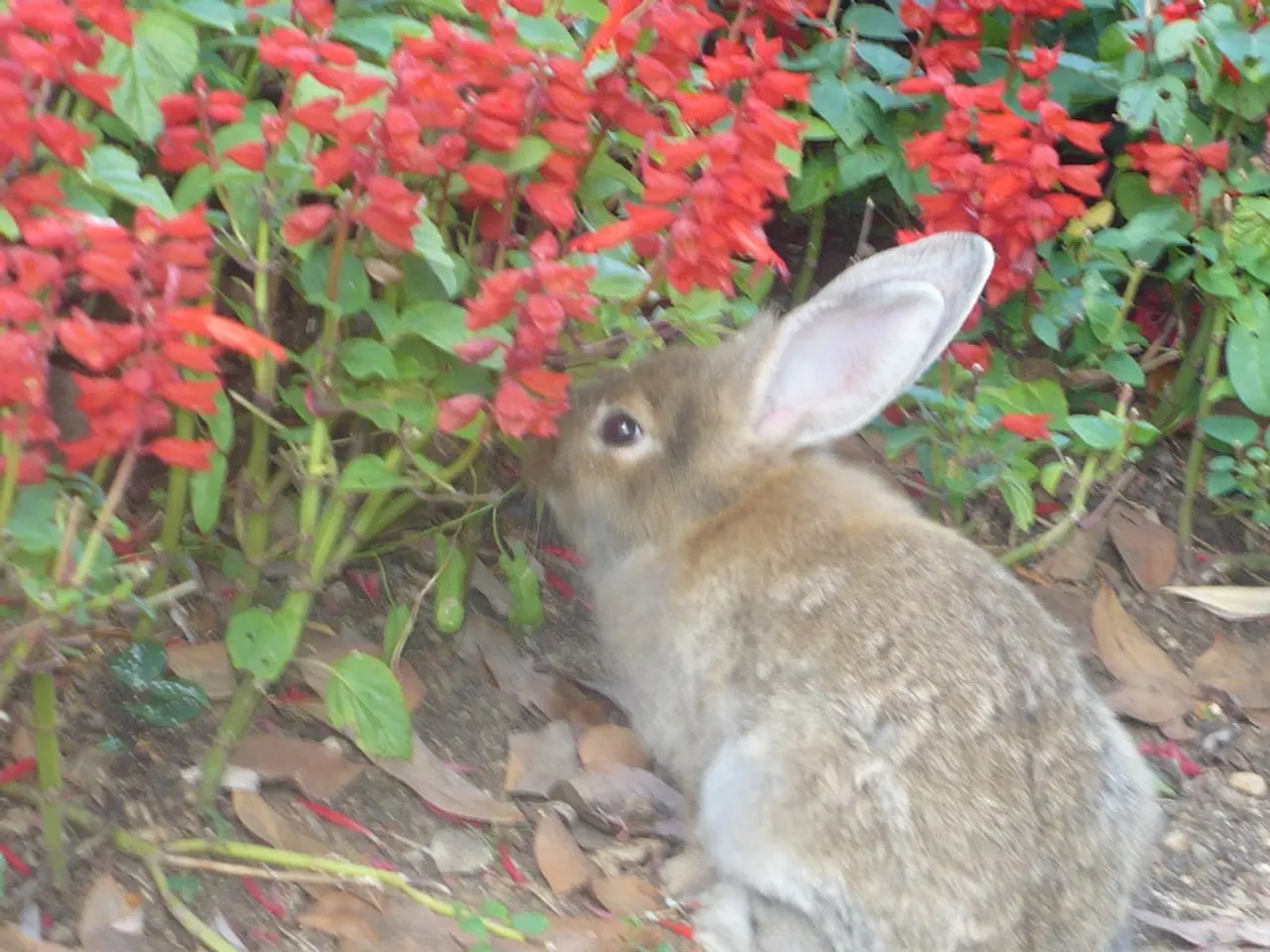Uncovering Plants Harmful to Rabbits: Essential Information for Rabbit Keepers
Rabbits are adorable and charming pets, but their delicate digestive systems make them sensitive to certain plants. Here's a guide to help you ensure your rabbit's safety by avoiding toxic plants and providing a nutritious diet.
Yew trees, foxgloves, and deadly nightshade are garden plants that can be fatal for rabbits and should be removed from their environment. Similarly, several common indoor plants are poisonous to rabbits due to their toxic compounds. These include Aloe Vera, Snake Plant (Sansevieria trifasciata), Philodendron varieties, Azalea, Japanese Painted Fern, and Ostrich Fern. These plants contain substances that can cause vomiting, diarrhea, oral irritation, nausea, heart problems, and severe health issues in rabbits.
On a positive note, nettles and dandelion leaves are safe for rabbits to consume and can be enjoyed by them without causing stings or irritation, as long as they have not been treated with weedkiller.
Rabbits are primarily herbivores that primarily eat hay and grass. Rabbit pellets can also be included in their daily diet but should not make up the majority of their food intake. A nutritious choice for rabbit food is Kaytee Timothy Complete Pelleted Rabbit Food, which includes prebiotics and probiotics to support a rabbit's digestive health.
It's important to note that rabbits should avoid eating the bulbs of flowering plants such as daffodils, tulips, irises, crocuses, and other plants like privet hedges, Rhododendron, Holly, Ivy, Buttercups, and Poppies. Toxins are most concentrated in the bulbs of these poisonous plants.
Leafy green vegetables and herbs like parsley, dill, cilantro, and basil can safely be given to rabbits as part of their diet. However, rabbits should avoid eating the bulbs of these plants.
Rabbit owners should be aware of poisonous indoor plants such as aloe vera, peace lilies, and Swiss cheese plants and keep them out of a rabbit's reach. Japanese Painted Fern and Ostrich Fern are also toxic to rabbits and humans, so it's best to avoid them in proximity to rabbits.
Plenty of the best hay for rabbits or grass should be available for rabbits as their main source of nutrition. Small Pet Select Second Cut Timothy Hay is not specified as a recommended food for rabbits in this context, but it's crucial to provide your rabbit with a steady supply of high-quality hay or grass.
By following these guidelines, you can help ensure your rabbit's safety and provide them with a balanced and nutritious diet. Happy bunny-keeping!
- Aloe Vera, Snake Plant (Sansevieria trifasciata), Philodendron varieties, Azalea, Japanese Painted Fern, Ostrich Fern, and peace lilies are poisonous plants that rabbits should avoid because they contain substances that can cause severe health issues.
- Rabbits can safely consume leafy green vegetables and herbs like parsley, dill, cilantro, and basil, but they should avoid eating the bulbs of these plants.
- It's important to provide rabbits with a nutritious diet that primarily consists of hay and grass, such as Kaytee Timothy Complete Pelleted Rabbit Food, which includes prebiotics and probiotics to support a rabbit's digestive health.
- Rabbits should avoid eating the bulbs of flowering plants such as daffodils, tulips, irises, crocuses, and others like privet hedges, Rhododendron, Holly, Ivy, Buttercups, and Poppies, as the toxins are most concentrated in the bulbs of these plants.
- To keep rabbits safe, pet owners should remove Yew trees, foxgloves, and deadly nightshade from their garden, and ensure that poisonous indoor plants like aloe vera and Swiss cheese plants are kept out of a rabbit's reach.




